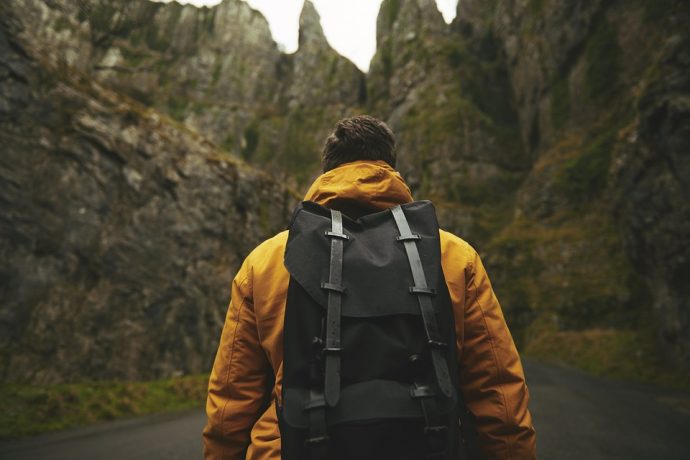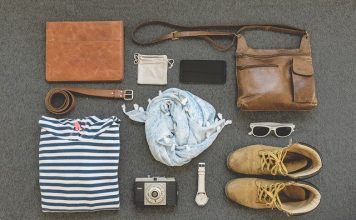Backpacking in the wilderness as a newbie can be quite intimidating. Even regular outdoor campers still have a lot to navigate through to have the best experience on a hike in the backcountry. Going through the endless list of what to pack and, more importantly, what not to include can cause worry.
You do not want to find yourself at a remote location only to discover that you left some very critical items at home. This alone can ruin the fun.
But as the summer is approaching, you can start by planning, preparing, and packing your gear items for an outdoor experience. Don’t we all say, “If you fail to prepare, prepare to fail?” Even seasoned backpackers understand the power of planning ahead for a hiking experience
Your boots, tent, bag, sleeping, air mattress, sleeping bags, kitchen utensils, and other necessities should be adequately considered before packing for your trip.
Reasons Backpacking is Worth Considering
Backpacking can be great for offering you direct contact with nature. It’s a way to disconnect from the hectic day-to-day life in the city and bustles of work and enjoy fresh air and exercise. It’s a relatively cheap and cost-effective way to have a vacation, even if it’s just for a night away. Finally, it can help you bond well with loved ones.
It mostly involves you relying more on your survival instincts and intellect, which positively impacts your mental and emotional health. As a result, you get a fresh perspective on life and a renewed sense of purposeful living — giving what a typical summer break is supposed to give.
Basic Backpacking Essentials
As you prepare for your next trip in the wild, you may have to let go of some of your basic comfort luxuries. But it doesn’t equate to being in absolute discomfort.
Using our foolproof method, you can have the best experience by simply turning a hectic process into a quick, easy, and fun-filled activity. One considers backpacking essential items into 4 different groups: essential items, non-essential but important items, non-essential but not important items, and non-essential and not important items.
Backpacking Essentials
Essential items are those that you basically cannot do without. Nothing that could substitute for them if you decide to be without them.
These include: Medical supplies, jack knife (multi-purpose), shoes, sleeping bags, tent, canned food, cash or credit cards, some seasoning (if you hate eating bland food), Sunscreen, warm clothes, mosquito repellants, hiking boots, cellphones, phone chargers, disinfectants, petroleum jelly, towel, warm undergarments, and other crucial items.
They should be items of top priority whenever you want to pack.
Essential, But Not Important
Essential but not highly important items are those you normally can’t do without. Still, if you do not have them, you can survive depending on the situation. They include soaps, toothpaste, a camera (to capture exciting moments), flip-flops, a wristwatch to tell the time, sunshades, shorts, power banks, portable cooking stoves, and basic repair items. These items fall under the next top priority items to pack.
Non-Essential, But Important
Non-essential but important items are those you can’t do without but are not essential to enjoy the backpacking trip generally. These are laptops, MiFis, diaries, books, writing materials (if you like to journal), meditation stones, scented candles, extra shoes, emergency sewing kits, tiny buckets and bowls, plates, spoons, etc.
Non-Essential, and Unimportant
Not essential and unimportant items are items you could do without, i.e., have no relevance to the trip. All you could think of that won’t serve you in any way but take up unnecessary space. So you want to travel as light and compact as possible (remember everything you take you need to carry!), which is the essence of backpacking.
Now that you know, sorting out what you need becomes easier, and now, it’s time for you to pack.
How to Pack Your Backpack
It’s easy to dump all you could grab into a duffel bag or backpack as you move, especially if it’s a last-minute trip without the luxury of adequate time to pack carefully. But you do not want to miss out on any important stuff.
Smaller items can be packed into tiny cellophane bags before they are kept in smaller pocket spaces. To conserve space in the bag, spread your outfits neatly before rolling them into sausage-like rolls to conserve space, making them easier to pick out. The makeshift portable tools can be kept in the side pockets.
Packing cubes can also make it easier to store and find different items in a large backpack.
In A Nutshell
In backpacking, less is more. The fuller backpack is harder to move around and vice versa. However, packing less doesn’t mean leaving a lot of stuff behind. Instead, it’s learning to maximize your backpack spaces for use as you move around.
Not every place gives you the luxury of spots to hang clothing or surfaces to keep stuff, so you have to work with what you have. So, you must ensure that your belongings are within reach and easy to pick out for use and return.
You should also take time to check for amazing destinations while planning.
Once you’ve packed your bag, get ready for a trip of a lifetime!
















